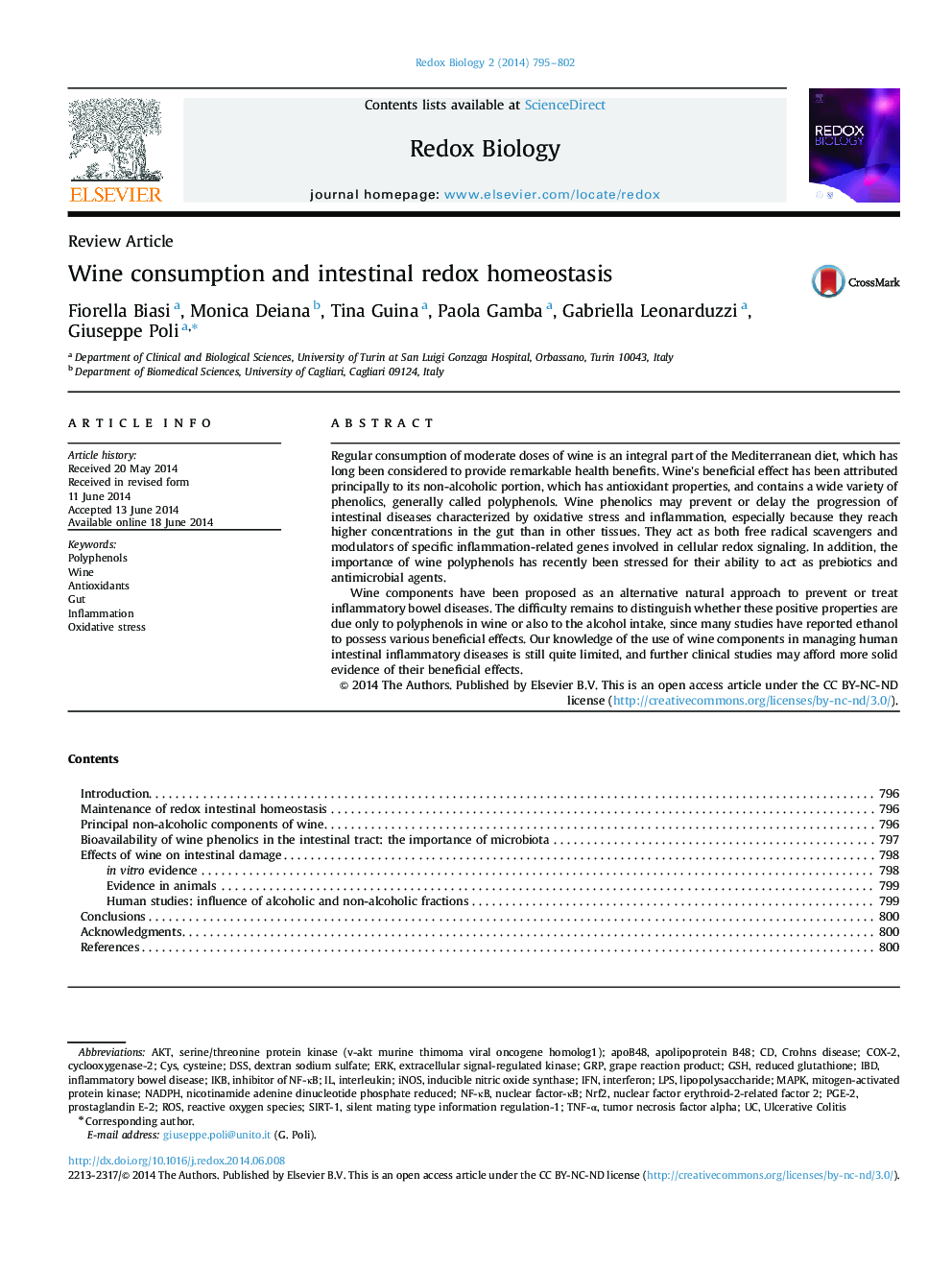| Article ID | Journal | Published Year | Pages | File Type |
|---|---|---|---|---|
| 1922986 | Redox Biology | 2014 | 8 Pages |
•Wine compounds regulate inflammation and redox signaling in intestinal cells.•Experimental and clinical data on wine impact on intestinal function are reviewed.•Among different antioxidants in wine, phenolic compounds are the most representative.•Microbiota has a principal role in the high availability of wine polyphenols in gut.•The influence of wine ethanol fraction on intestinal disease is also discussed.
Regular consumption of moderate doses of wine is an integral part of the Mediterranean diet, which has long been considered to provide remarkable health benefits. Wine׳s beneficial effect has been attributed principally to its non-alcoholic portion, which has antioxidant properties, and contains a wide variety of phenolics, generally called polyphenols. Wine phenolics may prevent or delay the progression of intestinal diseases characterized by oxidative stress and inflammation, especially because they reach higher concentrations in the gut than in other tissues. They act as both free radical scavengers and modulators of specific inflammation-related genes involved in cellular redox signaling. In addition, the importance of wine polyphenols has recently been stressed for their ability to act as prebiotics and antimicrobial agents.Wine components have been proposed as an alternative natural approach to prevent or treat inflammatory bowel diseases. The difficulty remains to distinguish whether these positive properties are due only to polyphenols in wine or also to the alcohol intake, since many studies have reported ethanol to possess various beneficial effects. Our knowledge of the use of wine components in managing human intestinal inflammatory diseases is still quite limited, and further clinical studies may afford more solid evidence of their beneficial effects.
Graphical abstractInfluence of wine phenolic components on intestinal cell function. The scheme summarized the main activities of phenolics, which are the predominant non-alcoholic components of wine. They can interfere with the development of inflammatory intestinal diseases and colorectal cancer. Phenolics multiple properties are due to both direct antioxidant effects and indirect activation of redox-sensitive cell pathways involved in negative regulation of inflammation and immune modulation.Furthermore, microbiota plays a role in phenolics activity: it is essential for their metabolism, enabling them to reach highest concentrations in the gut. Diversity of phenolic composition is a reflection of interindividual variation in colonic microflora; on the other hand, phenolics act as prebiotics, increasing microflora growth.Ethanol matrix has an undoubted role in the impact of wine on intestinal functions. Despite the well-known deleterious consequences of high ethanol consumption, it has been proved that small concentrations of ethanol are able to act as cell signals, and influence microbiota growth together with phenolics.Figure optionsDownload full-size imageDownload as PowerPoint slide
